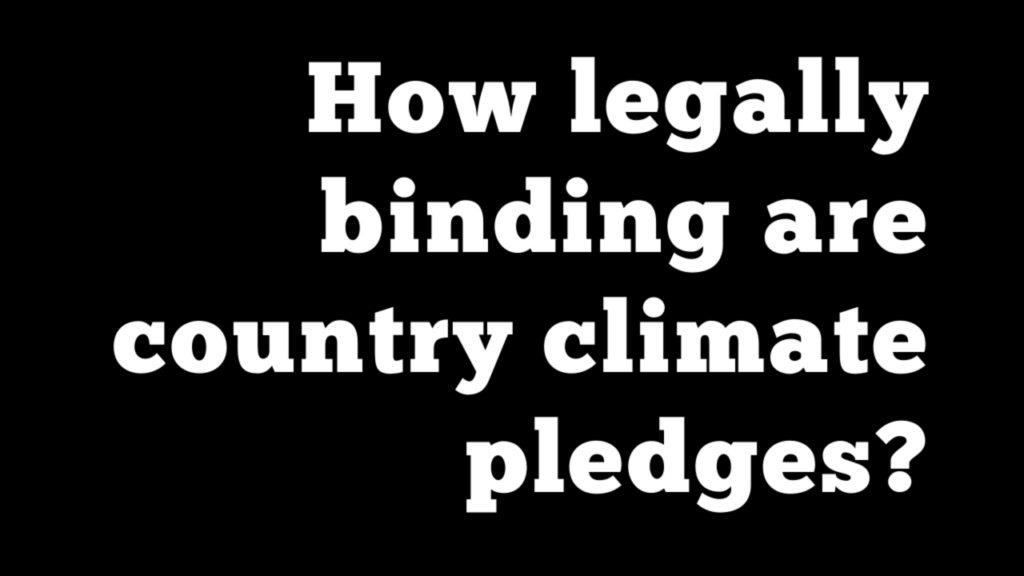How legally binding are country climate pledges?

Here’s the intro from this CNN article:
Pacific Island nation of Vanuatu on Wednesday won a historic vote at the United Nations that calls on the world’s highest court to establish for the first time the obligations countries have to address the climate crisis — and the consequences if they don’t.
Vanuatu has long faced the disproportionate impacts of rising seas and intensifying storms. And in 2021, it launched its call for the UN International Court of Justice to provide an “advisory opinion” on the legal responsibility of governments to fight the climate crisis, arguing that climate change has become a human rights issue for Pacific Islanders.
Although the advisory opinion will be non-binding, it will carry significant weight and authority and could inform climate negotiations as well as future climate lawsuits around the world. It could also strengthen the position of climate-vulnerable countries in international negotiations.
And here’s a summary of this Bloomberg Green article that was written just before the UN vote:
Vanuatu, leading a core group of 18 nations, wants the International Court of Justice to issue its assessment of what countries are obliged to do in order to make sure that global temperature rise is kept below the Paris Agreement target of 1.5 degrees Celsius. While those who breach their official pledges will not be taken to court directly, the ruling would be the most authoritative legal voice on where they are falling short both in terms of emissions cuts and finance to poorer nations.
“If states don’t do what the ICJ says needs to be done, they are violating the law,” said Margaretha Wewerinke-Singh, professor of law at the University of Amsterdam and lead counsel for Vanuatu.
For any of this to reach the ICJ, Vanuatu needs the support of a majority on the floor of the United Nations General Assembly on Wednesday. The process is expected to be smooth, with around two-thirds of countries backing the motion, according to Ralph Regenvanu, Vanuatu’s climate minister. It could even pass without an actual vote being held due to the wide agreement.It could then take up to two years for the ICJ to issue its opinion.
